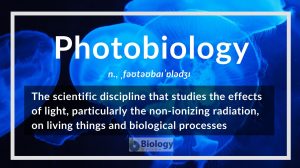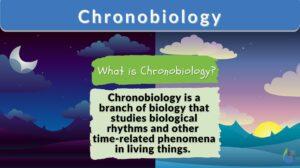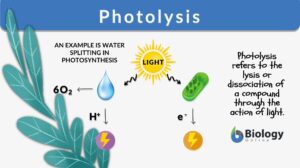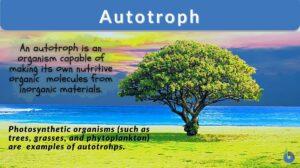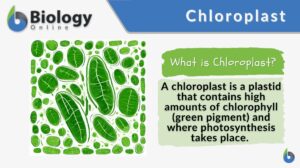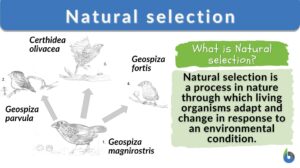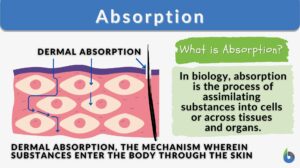Search Results for: light
Light-dependent reaction
Many organisms, such as green plants, convert light energy into chemical energy through the mechanism of photosynthesis. In... Read More
Light-independent reaction
The process of photosynthesis is a biological procedure in which plants produce oxygen and energy (sugar) by using light... Read More
Lights’ Effect on Growth
Plants are the primary producers of energy in any ecosystem, meaning that they bring in new energy to it which supports... Read More
Photosynthesis
Photosynthesis is a physio-chemical process carried out by photo-auto-lithotrophs by converting light energy into chemical... Read More
Polarized light
Definition noun Light in which electromagnetic vibrations oscillate repeatedly in only one direction perpendicular to the... Read More
Pupillary light reflex
Definition noun, plural: pupillary light reflexes A reflex marked by the constriction of the pupil in response to the... Read More
Light energy
Definition noun A form of energy consisting of particle-like photons with wavelike properties, and in which affects the... Read More
Chlorophyll
Why are most plants green? Have you ever had the same question? Perhaps, you’ve been told that the plants are green... Read More
Plant Metabolism
Introduction Plants are responsible for incredible feats of molecular transformation. The processes are always being... Read More
Light reactions
Definition noun The series of biochemical reactions in photosynthesis that require light energy that is captured by... Read More
photobiology
Photobiology Definition Photobiology, the biology of light, is a subdiscipline in biology. It focuses on the effects of... Read More
Chronobiology
Chronobiology Definition Chronobiology is a branch of biology that studies time-related phenomena (e.g., biological... Read More
Photolysis
Photolysis Definition We define photolysis as a chemical process in which chemical compounds or molecules are split into... Read More
Growth and Plant Hormones
Growth All living organisms begin in the same form: as a single cell. That cell will divide and the resulting cells will... Read More
Visible light
Definition noun The electromagnetic radiation with wavelengths between 400 nm and 750 nm and can produce a visual... Read More
Calvin cycle
Calvin Cycle Definition The Calvin cycle, also known as the Calvin Benson cycle or the dark reactions, is a series of... Read More
Sensory Systems
A sensory system is a part of the nervous system consisting of sensory receptors that receive stimuli from the internal and... Read More
photomedicine
Photomedicine Definition Photomedicine is a branch of medicine that specializes in the therapeutic application of light. As... Read More
Light sense
Light sense The ability to perceive variations in the degree of light or... Read More
Fluorescence
Definition noun The absorption and the immediate re-emission of light or photon, which has longer wavelength when re-emitted... Read More
Carbon fixation
Carbon Fixation Definition We know that the earth contains many elements. The periodic table shows us just how many... Read More
Phosphorescence
Definition noun The delayed emission of light at temperatures below incandescence, as a result of a previous light... Read More
Bioluminescence
Definition noun The production and emission of light by an organism; the capability of an organism to produce and emit light... Read More
Blindness – Evolutionary regression? Maybe not!
The recent Netflix's hit flick, Bird Box, surely startled the viewers with the thrilling scenarios revolving around the... Read More
Characteristic
Characteristics Definition We can define characteristics as qualities or features that describe the distinctive nature or... Read More
Accessory pigment
Definition noun, plural: accessory pigments A non-chlorophyll pigment inside the chloroplast of photosynthetic organisms,... Read More
Abiotic and Biotic Factors
Abiotic factors are essentially non-living components that affect the living organisms of the freshwater community. When... Read More
Freshwater Communities & Lentic Waters
Lentic (still water) communities can vary greatly in appearance, anything from a small temporary puddle to a large lake is... Read More
Photosynthesis – Photolysis and Carbon Fixation
Photosynthesis is the means that primary producers (mostly plants) can obtain energy via light energy. The energy gained... Read More
Phototropism
Definition noun, plural: photoropisms Growth or movement response of a cell or an organism to light Supplement In general,... Read More
Chloroplast
Chloroplast Definition What is chloroplast? In biology, a chloroplast refers to the organelle found within the cell of... Read More
Natural selection
Natural Selection Definition What is natural selection in biology? Natural selection is defined as a process in nature... Read More
Absorption
Absorption can be defined as the process of assimilating substances across the intestinal epithelial cells or the tissues... Read More







